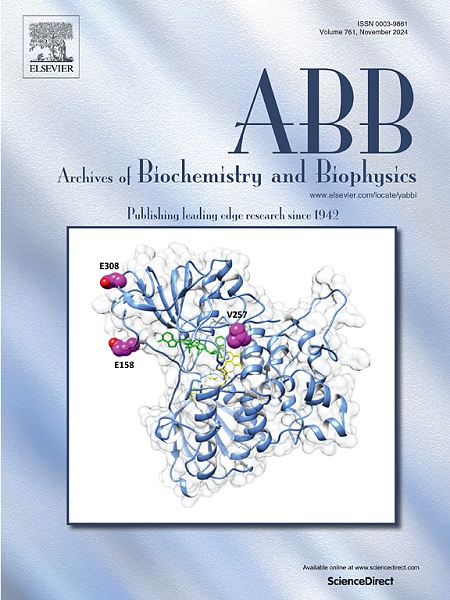PPIA enhances cell growth and metastasis through CD147 in oral cancer
IF 3.8
3区 生物学
Q2 BIOCHEMISTRY & MOLECULAR BIOLOGY
引用次数: 0
Abstract
Oral cancer is a malignant tumor, and the associated death rate has significantly increased over the past few decades. Secreted fractions are involved in various physiological processes, and their analysis has become a promising approach for discovering diagnostic and prognostic biomarkers for cancer detection and monitoring metastasis. Therefore, the discovery of potential prognostic, diagnostic, and therapeutic biomarkers for oral cancer metastasis is beneficial for developing effective strategies in oral cancer therapy. In this study, we used secretomic analysis to identify the secreted proteins involved in oral cancer. One of the identified proteins, peptidylprolyl isomerase A (PPIA), was selected for further investigation. We used RNA interference to investigate the effect of PPIA secretion on invasion and migration of OC3–I5 cells. Our results showed that reducing the expression and secretion of PPIA significantly decreased invasion and migration of OC3–I5 cells. Next, we used recombinant PPIA to investigate its direct effect on OC3 cell metastasis. The results revealed that proliferation, migration, and invasion of OC3 cells were significantly increased by treatment with the recombinant PPIA. Immunohistochemical analyses revealed higher PPIA expression in tumor tissues compared to normal tissues. Concisely, PPIA activated the ERK1/2 and p38 MAPK signaling pathways and enhanced cell proliferation and metastasis through CD147. In summary, PPIA may prove to be a novel target for oral cancer therapy as well as a prognostic marker.

求助全文
约1分钟内获得全文
求助全文
来源期刊

Archives of biochemistry and biophysics
生物-生化与分子生物学
CiteScore
7.40
自引率
0.00%
发文量
245
审稿时长
26 days
期刊介绍:
Archives of Biochemistry and Biophysics publishes quality original articles and reviews in the developing areas of biochemistry and biophysics.
Research Areas Include:
• Enzyme and protein structure, function, regulation. Folding, turnover, and post-translational processing
• Biological oxidations, free radical reactions, redox signaling, oxygenases, P450 reactions
• Signal transduction, receptors, membrane transport, intracellular signals. Cellular and integrated metabolism.
 求助内容:
求助内容: 应助结果提醒方式:
应助结果提醒方式:


